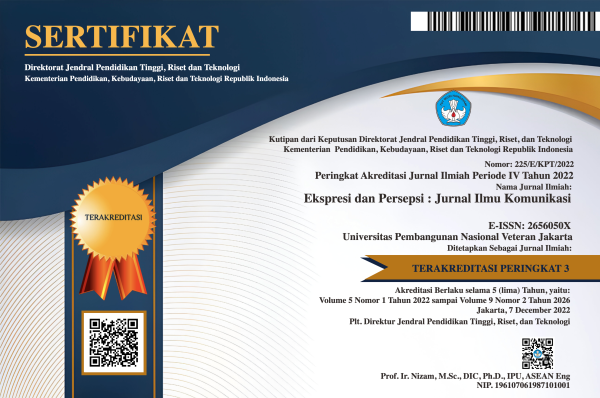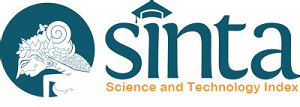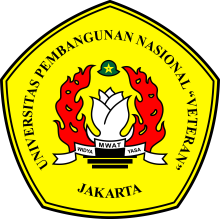POLARISASI VAKSIN COVID-19 STUDI TENTANG BERITA HOAX DAN POPULISME DI KOTA PADANG
DOI:
https://doi.org/10.33822/jep.v6i2.5176Keywords:
Covid19, Hoax, Polarisasi, Populisme, VaksinAbstract
Tujuan dari penelitian ini diantaranya untuk mengetahui fenomena polarisasi, narasi hoax lewat sosial media dan populisme terutama kaitannya dengan kepercayaan kepada pemerintah. Peneliti menggunakan metode penelitian deskriptif kualitatif dengan teknik pengumpulan data melalui wawancara dan dokumentasi terutama dari sosial media. Pengetahuan dan keyakinan awal tentang vaksin Covid-19 merupakan faktor utama dari informan. Faktor yang mempengaruhi anti vaksin yakni influencer di media sosial serta adanya ketidakpercayaan kepada pemerintah dalam menangani krisis. Adanya kesimpangsiuran informasi mengenai Covid-19 dan vaksinasi Covid-19 menjadi celah awal ketidak percayaan masyarakat. Pesan di sosial media merupakan peneguh dari keyakinan awal bahwa vaksin berbahaya dan merupakan bentuk konspirasi.
References
Adamic, L. A., & Glance, N. (2005). The political blogosphere and the 2004 U.S. election: divided they blog. Proceedings of the 3rd International Workshop on Link Discovery, 36–43. https://doi.org/https://doi.org/10.1145/1134271.1134277
Ambardi, K., Parahita, G., Lindawati, L., Sukarno, A., & Aprilia, N. (2014). Indonesia Mapping Digital Media : Mapping Digital Media : Indonesia. Open Society Foundation.
APJII. (2022). Profil Internet Indonesia 2022. Apji.or.Od, June, 10. apji.or.id
Aziz, M. S., & Wicaksono, M. A. (2020). Komunikasi Krisis Pemerintah Indonesia dalam Penanganan Covid-19. Masyarakat Indonesia, 46(2), 194–207. https://doi.org/10.14203/jmi.v46i2.898
Barber, B. (2003). Strong Democracy: Partisipatory Politics For a New Age. University of California Press.
Bennett, W. L., & Livingston, S. (2018). The disinformation order: Disruptive communication and the decline of democratic institutions. European Journal of Communication, 33(2), 122–139. https://doi.org/10.1177/0267323118760317
Breindl, Y. (2010). Internet-based Protest in European policy-making: The Case of Digital Activism. International Journal of E-Politics, 1(1), 57–72.
Castanho, S. B., Vegetti, F., & Littvay, L. (2017). The Elite Is Up to Something: Exploring the Relation Between Populism and Belief in Conspiracy Theories. Swiss Political Science Review, 23(4), 423–443. https://doi.org/10.1111/spsr.12270
Dahlgren, P. (2005). The internet, public spheres, and political communication: Dispersion and deliberation. Political Communication, 22(2), 147–162. https://doi.org/10.1080/10584600590933160
Fahmi, I. (2021). Kampanye Stop Berita Covid. Drone Emprit. https://pers.droneemprit.id/kampanye-stop-berita-covid/
Germani, F., & Biller-Andorno, N. (2021). The anti-vaccination infodemic on social media: A behavioral analysis. PLoS ONE, 16(3 March), 1–14. https://doi.org/10.1371/journal.pone.0247642
Grover, P., Kar, A. K., Dwivedi, Y. K., & Janssen, M. (2019). Polarization and acculturation in US Election 2016 outcomes – Can twitter analytics predict changes in voting preferences. Technological Forecasting and Social Change, 145, 438–460. https://doi.org/10.1016/j.techfore.2018.09.009
Hadiz, V.,& Robinson, R. (2017). Competing Poulisms in Post-authoritarian Indonesia. International Political Science Review, 38(4), 488–502. https://doi.org/10.1177/0192512117697475
Hadiz, V. R. (2018). Imagine All the People? Mobilising Islamic Populism for Right-Wing Politics in Indonesia. Journal of Contemporary Asia, 48(1), 1–18. http://dx.doi.org/10.1080/00472336.2018.1433225
Hindman, M. (2008). The Myth of Digital Democracy. Princeton University Press.
Imrani, R. A., Suteja, N. J., & Juddi, M. F. (2023). Literasi Politik Berbasis Media ( Studi Kasus Program Desa Peduli Pemilu Dan Pemilihan Kota Surabaya ). 6(1), 195–204.
Indrawan, J., Barzah, R. E., & Simanihuruk, H. (2023). Instagram sebagai Media Komunikasi Politik bagi Generasi Milenial. 6(1), 170–179.
Justito, A., Gumgum, G., Hartoyo, & Maharani, N. (2017). Hoax, Reproduksi dan Persebaran: Suatu Penelusuran Literatur. Jurnal Pengabdian Kepada Masyarakat, 1(4), 271–278.
Kompas. (2021). [HOAKS] Vaksin Sinovac di Indonesia Dipasangi Chip untuk Memantau Rakyat. https://www.kompas.com/tren/read/2021/01/20/100500165/hoaks-vaksin-sinovac-di-indonesia-dipasangi-chip-untuk-memantau-rakyat?page=all
Lawrence, E., Sides, J., & Farrell, H. (2010). Self-segregation or deliberation? blog readership, participation, and polarization in american politics. Perspectives on Politics, 8(1), 141–157. https://doi.org/10.1017/S1537592709992714
Lee, E.-J. (2007). Deindividuation Effects on Group Polarization in Computer-Mediated Communication: The Role of Group Identification, Public-Self-Awareness, and Perceived Argument Quality. Journal of Communication, 57(2), 385–403. https://doi.org/https://doi.org/10.1111/j.1460-2466.2007.00348.x
Lee, S., & Xenos, M. A. (2019). Social Distraction? Social Media Use and Political Knowledge in Two U.S. Presidential Elections. Computers in Human Behavior, 90, 18–25. https://doi.org/http://dx.doi.org/10.1016/j.chb.2018.08.006
Lim, M. (2013). Many Clicks but Little Sticks: Social Media Activism in Indonesia. Journal of Contemporary Asia, 43(4), 636–657. https://doi.org/10.1080/00472336.2013.769386
MacDougall, C. D. (1958). Hoaxes. Dover Publication.
Nadzir, I., Seftiani, S., & Permana, Y. S. (2019). Hoax and Misinformation in Indonesia: Insights from a Nationwide Survey. Iseas, 5(2), 1–12.
Neudert, L. M., Howard, P., & Kollanyi, B. (2019). Sourcing and Automation of Political News and Information During Three European Elections. Social Media and Society, 5(3). https://doi.org/10.1177/2056305119863147
Nugroho, Y., Nugraha, L. K., Laksmi, S., Amalia, M., Putri, D. A., & Amalia, D. (2012). Media and the vulnerable in Indonesia : Accounts from the margins. November, 0–135.
Pariser, E. (2011). The Filter Bubble: What The Internet Is Hiding From You. The Penguin Press.
Putera, V. S., Sirodj, D. A. N., & Permana, R. H. (2021). Vaksinasi Covid-19 di Media Sosial Twitter; Tinjauan Content dan Social Network Analysis. Komunikologi: Jurnal Pengembangan Ilmu Komunikasi Dan Sosial, 5(2), 109. https://doi.org/10.30829/komunikologi.v5i2.9771
Raj, R., Koyalada, S., Kumar, A., Kumari, S., Pani, P., Nishant, & Singh, K. K. (2020). Psychological impact of the COVID-19 pandemic on healthcare workers in India: An observational study. Journal of Family Medicine and Primary Care, 9(12), 5921–5926. https://doi.org/10.4103/jfmpc.jfmpc
Schulz-Hardt, S., Frey, D., Lüthgens, C., & Moscovici, S. (2000). Biased information search in group decision making. Journal of Personality and Social Psychology, 78(4), 655–669. https://doi.org/10.1037/0022-3514.78.4.655
Shalihah, N. F., & Nugroho, R. S. (2021). Vaksinasi Covid-19 Dimulai 13 Januari, Waspada 5 Hoaks Soal Vaksin Ini. Kompas.Com. https://www.kompas.com/tren/read/2021/01/06/140000165/vaksinasi-covid-19-dimulai-13-januari-waspada-5-hoaks-soal-vaksin-ini?page=all
Sunstein, C. R. (2001). Republic.com. Princeton University Press.
Tapsell, R. (2015). Indonesia’s Media Oligarchy and the “Jokowi Phenomenon.” Indonesia, 99(1), 29–50. https://doi.org/10.1353/ind.2015.0004
Tapsell, R. (2019). Indonesia’s Policing of Hoax News Increasingly Politicised. ISEAS Perspective, 75, 1–10. https://www.iseas.edu.sg/images/pdf/ISEAS_Perspective_2019_75.pdf
Tewksbury, D. (2005). The seeds of audience fragmentation: Specialization in the use of online news sites. Journal of Broadcasting and Electronic Media, 49(3), 332–348. https://doi.org/10.1207/s15506878jobem4903_5
Van Prooijen, J. W., & Douglas, K. M. (2017). Conspiracy theories as part of history: The role of societal crisis situations. Memory Studies, 10(3), 323–333. https://doi.org/10.1177/1750698017701615
Wardhani, A.K., (2020). Tegal Bakal Local Lockdown, Seperti Apa Mekanismenya? Ini Penjelasan Wakil Walikota Pada Ganjar. Tribunnews.Com. https://www.tribunnews.com/corona/2020/03/27/tegal-bakal-local-lockdown-seperti-apa-mekanismenya-ini-penjelasan-wakil-walikota-pada-ganjar
Yardi, S., & Boyd, D. (2010). Dynamic Debates: An Analysis of Group Polarization Over Time on Twitter. Bulletin of Science, Technology & Society, 30(5), 316–327. https://doi.org/10.1177/0270467610380011
Zempi, C. N., Kuswanti, A., & Maryam, S. (2023). Analisis Peran Media Sosial dalam Pembentukan Pengetahuan Politik Masyarakat. Ekspresi Dan Persepsi : Jurnal Ilmu Komunikasi, 6(1), 116–123.
Downloads
Published
Issue
Section
License
Copyright (c) 2023 Diego - Diego

This work is licensed under a Creative Commons Attribution-NonCommercial 4.0 International License.














